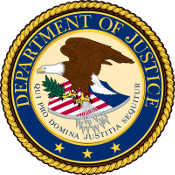
Marr Remission
Marr Remission
Mary Marr, United States v. Casimiri, et al., Case No.: 8:18-cr-167; Brooks Nesbitt, United States v. Nesbitt, Case No.: 8:19-cr-609; Douglas Casimiri, United States v. Casimiri, et al., Case No.: 8:18-cr-167; Tracey Jedlicki, United States v. Jedlicki, Case No.: 8:21-cr-376; Jeffrey Jedlicki, United States v. Jedlicki, Case No.: 8:21-cr-135; Massimiliano Turi, United States v. Turi, et al., Case No.: 8:20-cr-151; Rachael Winslow, United States v. Winslow, et al., Case No.: 8:20-cr-140; Michel Chateau, United States v. Casimiri, et al., Case No.: 8:18-cr-167; Layne Gerstel, United States v. Turi, et al., Case No.: 8:20-cr-151; Alexander Landa, United States v. Turi, et al., Case No.: 8:21-cr-151; Frank Visicaro, United States v. Winslow, et al., Case No.: 8:20-cr-140; Rose Marie Casimiri, United States v. Casimiri , et al., Case No.: 8:18-cr-467; Albert Michael Rivere, United States v. Casimiri, et al., Case No.: 8:18-cr-467.
From approximately 2009 through 2019, Marr and other conspirators operated an international fraud and money laundering ring. They contracted with various international “boiler rooms” to launder fraud proceeds the conspirators had obtained from foreign victims, primarily by selling worthless investments. The conspirators employed a mass-marketing scam in which high-pressure sales techniques originating out of boiler rooms were used to defraud individuals who believed that they were investing substantial amounts of money in regulated financial products or markets, particularly shares of stocks. In reality, the investments were a sham and the victims received nothing.
You may be eligible for a remission payment if you sent funds for one of these sham investments.